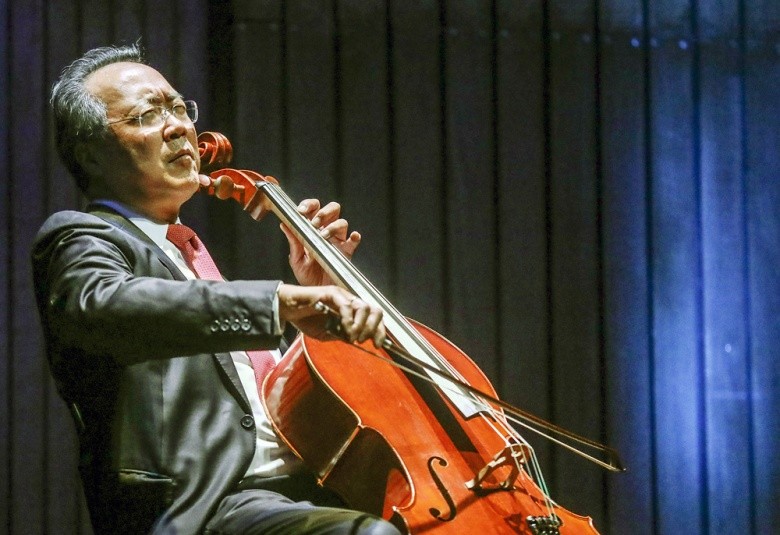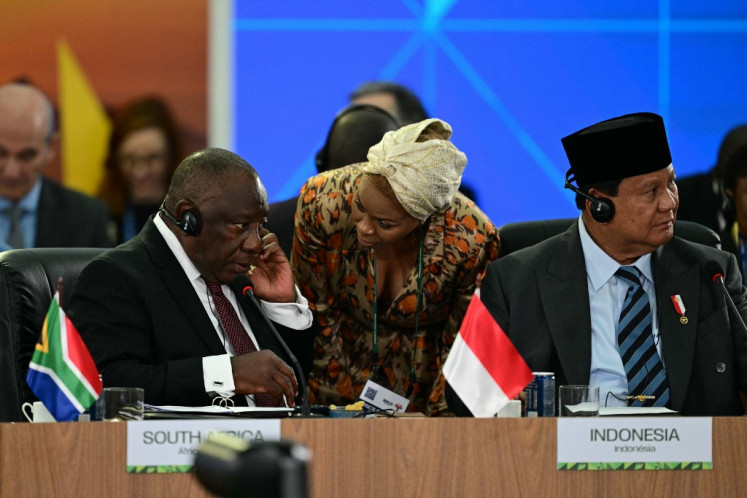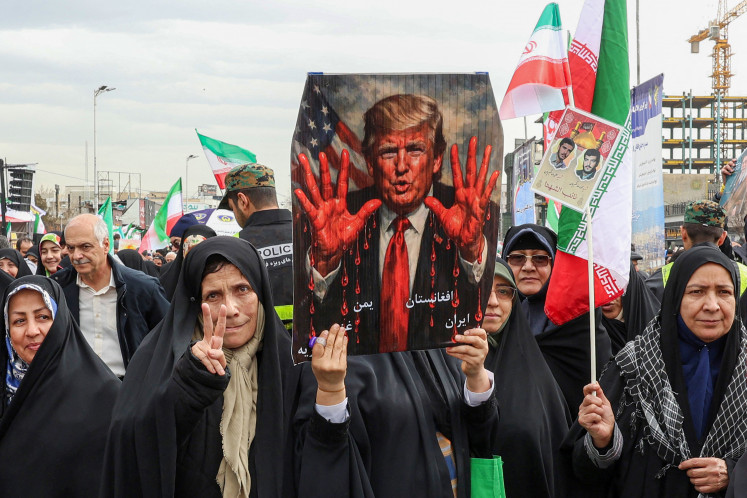Popular Reads
Top Results
Can't find what you're looking for?
View all search resultsPopular Reads
Top Results
Can't find what you're looking for?
View all search resultsIndonesia and all Southeast Asia should heed the music of connection
Music moves and has the power to connect across cultures — at home and abroad. Turning that message of connection into reality is something that we each could do more of these days in Indonesia and around our region and the world, at a time when so much of our civic conversations are focused on division.
Change text size
Gift Premium Articles
to Anyone
W
hen acclaimed cellist Yo-Yo Ma takes the stage on Friday at the Jakarta International Expo Theater, the power of his music and his message will be clear.
Music moves and has the power to connect across cultures — at home and abroad. Turning that message of connection into reality is something that we each could do more of these days in Indonesia and around our region and the world, at a time when so much of our civic conversations are focused on division.
Presented by Shoemaker Studios and GoImpact — a venture I support that is focused in part on building an ecosystem to help turn sustainable development goals and sustainable finance rhetoric into reality — Ma will perform Johann Sebastian Bach’s six suites for solo cello in one sitting.
This landmark performance and an accompanying “Day of Action” in Indonesia is part of The Bach Project — a journey to three dozen cities around the world to celebrate Bach’s ability to speak to the common community and also explore how culture connects people to a better future.
The music of Bach may well not have been top of mind just a few days earlier in Jakarta at another event with a powerful message of engagement I attended — the 5th Conference on Indonesian Foreign Policy, organized primarily by my Milken Institute colleague and former Indonesian ambassador to the United States Dino Patti Djalal. The Indonesian young people in attendance might have been more well-versed on Hollywood films and online YouTube sensations if the enthusiastic responses to pop culture questions on a game show I cohosted are any indicator.
Yet, there too Ma’s message of connection and of the need for action were also on display as several thousand Indonesian students focused on listening, on learning and on exchanging ideas about Indonesia’s engagement with the world.
I was reminded then and there also of a classic old Hollywood film and of the challenge for each of us, young and not-so-young, to overcome preconceived notions and instead build connections to and find common ground with people from all walks of life.
In the 1960s film, The Good, the Bad, and the Ugly, actor Clint Eastwood plays a loner fighting off a ruthless bounty hunter and a Mexican bandit in pursuit of stolen gold. At first, distinguishing the good guys from the bad guys seems easy. Yet, as the American Western plays out, those lines start to blur.
The film reminds us of how our stereotypes can block engagement and connection. At a conference a few years back in Kathmandu, Nepal about the importance of business involvement in helping local economies grow, create jobs and fight poverty, I was struck by one reaction that reminded me of that film and that may well live on today in Indonesia.
One participant declared, “Oh, you’re one of the bad guys,” after he learned that I was from the private sector. I was more amused than surprised by the remark. Having worked in government under several US administrations, and as a corporate executive, I realize stereotypes follow whichever career path you choose. This is as true in Southeast Asia as it is in the US.
The private sector has been cast as ruthless, profit-driven people unlikely to do good in the world. The public sector has been called corrupt, and the not-for-profit sector has been labeled naive.
As realistic, or not, and as common as these stereotypes might be, they get in the way of building connections and understanding between people.
Private, public and not-for-profit players around the world can all drive change and economic growth, and will be better positioned to fight poverty if they do so together. Yet, all have been slow to come together and move beyond the politics and discord that keep far too much of our region and our world poor, including in Southeast Asia.
With so much talk about how public-private partnerships could combat poverty, Indonesia and the rest of the region will benefit if we move beyond stereotypes and finger-pointing. “The Bad, the Corrupt, and the Naïve” may well be an interesting title for an upcoming film, but that is no prescription for building the kind of trust needed to move partnerships forward.
We must better serve all communities too often plagued by inaccessibility or limited access to capital, and by either fragile agricultural ecosystems or overwhelming urbanization. Actionable, on-the-ground efforts are critical to sustainable development and finance, and balanced growth.
Ma has said, “I believe that culture — the way we express ourselves and understand each other — is an essential part of building a strong society.” In explaining the mission of The Bach Project, he continued, “My hope is that together we can use Bach’s music to start a bigger conversation about the culture of us.”
Indeed. We must move beyond stereotypes, as well as politics and the business-as-usual mindset. Doing so is essential to building connections, finding common ground, and driving shared prosperity in Indonesia and the entire Indo-Pacific region. Now that would be music to all our ears.
***
Former United States ambassador to the Asian Development Bank under presidents Barack Obama and George W. Bush (2007-2010) and is managing director of advisory firm RiverPeak Group, LLC.










